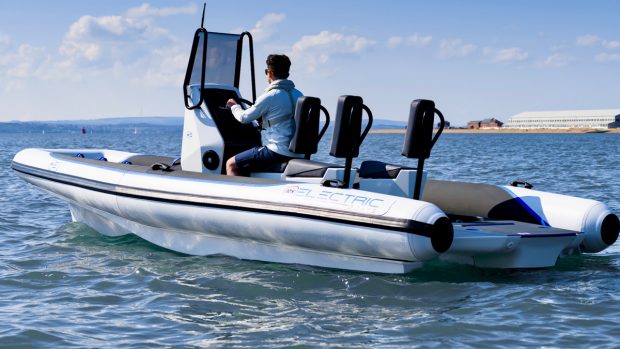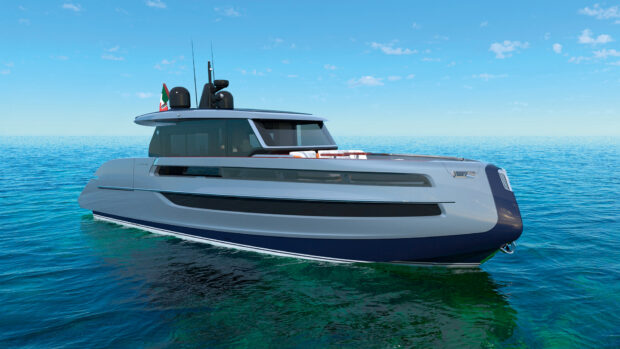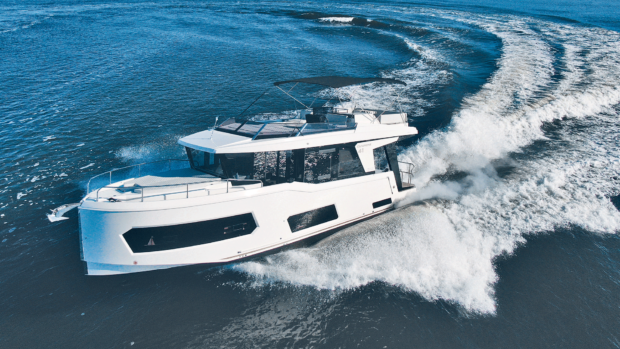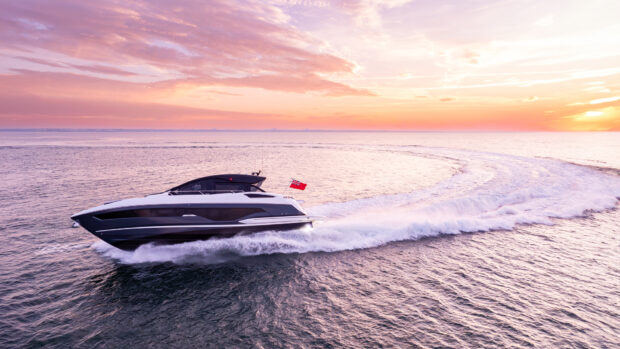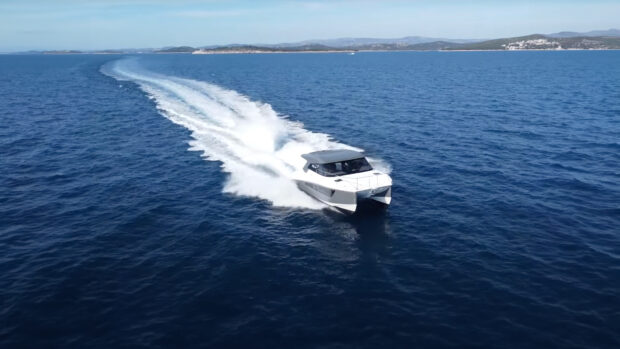The Egret crew are passagemakers, closing in on Pitcairn Island
325.1nm from Bounty Bay
Scott (YT) and Mary Flanders (MS) left Gibraltar on 16 September 2006, and we’ll be following their journey every step of the way, thanks to this unique online “blog”. For a complete list of all the couple’s blog entries click here
After some inventive fuel circulation Scott, Mary and Frank are bracing themselves for some more big swells
Friday 9 May
Well, mis amigos, yesterday and today can be easily summed up in a few words: beautiful weather, slightly rolling seas with little wind, clear skies, stars, a sliver of moon and no fish.
We are running at 1350rpm at 6-6.1 knots, better than 4mpg. Not bad. If every day at sea could be like the past few it would be great but in this watery game of give and take, that’s not the way things roll. OMNI Bob is predicting a bit of a puff on Monday so we’ll wait and see. In the meantime Frank has fishing chores to address. This tough, off watch duty consists of muti-tasking just like the old work days, but with a twist. With an open saloon door and an ear turned toward the rods listening for the reel drags to start their music, Frank is also attacking nap shores. Multi-tasking,Egretstyle.
Saturday 10 May
Today we did some Manual labour, which took up most of the busy morning. We transferred the last of the deck fuel into the port tank, which gives us a comfortable 940 gallons in total. To do this we first we emptied the fuel bladder behind the Portuguese bridge (that had been there since Ushuaia), then 56 gallons of jerry jug fuel, all through the baja filter, a very handy and necessary item. Finally, we are a proper passagemaker again. We hope never again to use the bladders or jerry jugs for carrying extra fuel.
Speaking of fuel, we have been circulating fuel continuously since leaving mainland Chile. Although we cleaned our tanks in Ushuaia, Argentina before leaving and have filtered all the fuel from the fuel bladders and jerry jugs along the way we were still using more 2 micron Racor elements than usual. Argentine fuel simply clogs filters for some reason. We have been using 30 micron filter elements in the circulation filter just to use up a supply we had on hand as they weren’t doing the job. We switched to 10 micron and the primary filter useage dropped dramatically. Normally we would use 2 micron elements in both the primary filter and the circ filter. With a limited supply coming with friends to Tahiti we’ll stick to the 10 micron in the circ filter. One trick we learned through a fellow boater is to wrap our filter elements in paper towels. We carry blue heavy duty paper towels lugged from the States for engineroom duty. I took two sheets, I folded them in half and wrapped the circ element then slid it back in the filter housing and gave it a two-day test. After two days the towels were still intact and had discoloured slightly showing trapped contaminates. The filter element itself was spotless.
Saturday pm/Sunday am
The weather has swung into the westerly quadrants – the direction we are going. Rats! There’s not a lot of wind except during squalls.
Sunday 11 May pm
The wind was clocking all day from the NW through to the SW with rain and intermittent wind. Fortunately the waves or swells haven’t been an issue except to slow us down and make our planned arrival in Bounty Bay, Pitcairn Island, by Midday Wednesday doubtful. It is currently after dark and the wind has swung to the SE giving us a much needed boost. We’re bouncing between 6.1 and 6.2 knots.
Monday 12 May am
It is before daybreak and the SE winds have picked up to the 20 knot range giving us swells from the SE and a corkscrew motion throughout most of the night.
The rudder was cavitating a bit trying to keep on course. We’ll pass along a little lesson we experienced the other day. While stowing the empty fuel bladder in the lazarette I routinely checked the rudder arm bolts, which were loose. This isn’t the first time and is a matter of routine maintenance.
Egretis running west, the swells are from the SE putting them on the port stern quarter. The swells try to lift the stern and set it to starboard. The autopilot compass senses the change and sends a signal to the autopilot brain, which in turn sends a signal toEgret’scommercial-sized autopilot pump, which in turn pumps lots of fluid to the heavy duty steering ram that in turn quickly moves the rudder where it needs to go to counteract the swell.
When the rudder moves quickly it cavitates causing a slight shuttering. These vibrations in time loosen the steering arm nuts even though they are 1/2in bolts with heavy standard nuts, with a lock nut backing up the first nut as a jam nut. When tightening the nuts we got to the last one and found the bolt head sheared off. We don’t carry 1/2in bolts but luckily we did happen to have a spare 1/2in custom-machined bolt left over from our paravane installation.
Using a bronze pipe coupling as a spacer, a couple of washers and a locknut we are now back in the four-bolt rudder arm business.
When our friends meet us in Tahiti they will have a supply of 1/2in bolts and nuts for spares. These nuts were tight in Ushuaia, Argentina, 4734 nm ago, the last time I checked. Obviously I should have checked since.
The miles to Pitcairn are winding down. We heard from our son that there are new pictures posted at www.nordhavn.com . We don’t really know what pictures were picked but hopefully they include some of the pictures taken from the lookout where Big Al, (Alexander Selkirk, the real-life Robinson Crusoe) checked every day for passing ships back in the 1700s. We stood exactly where he did. A couple more days from our life at sea, only 325.1nm from Bounty Bay. Ciao.
P.S. OMNI Bob’s forecast is remarkably accurate. How he can predict exactly what we are experiencing from back in the States is a mystery. Great job.
Picture 1. The single Easter Island mountain quarry for carving the giant Moai statues.
Picture 2. Finished Moais waiting to be transported down the mountain. There are many of these heads scattered around and these are the ‘long ears’ variety from later years.




